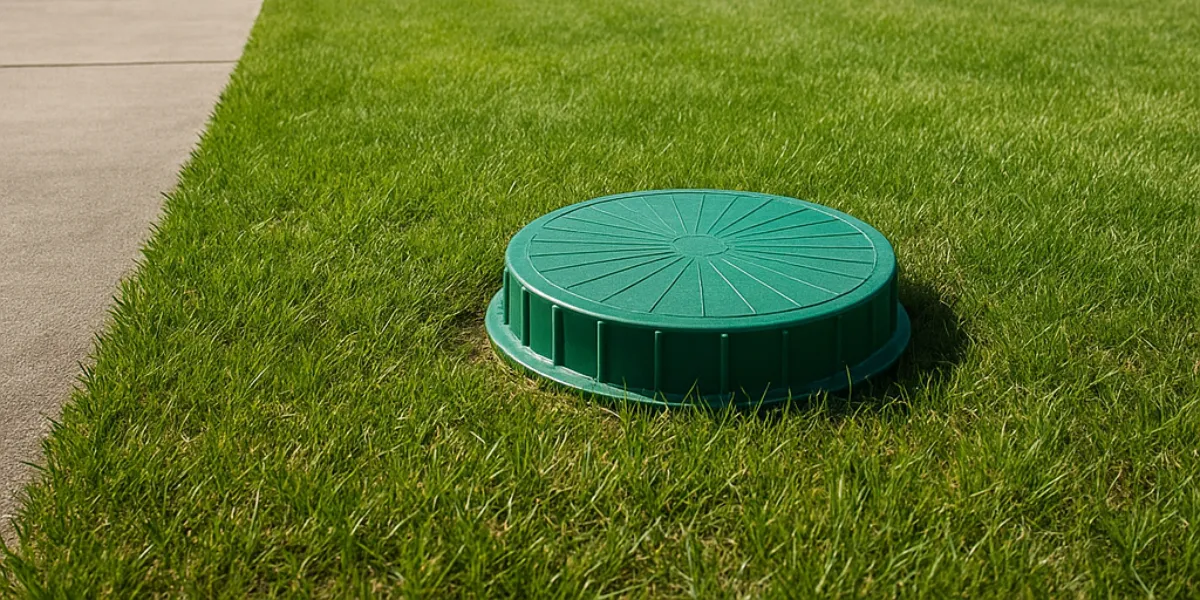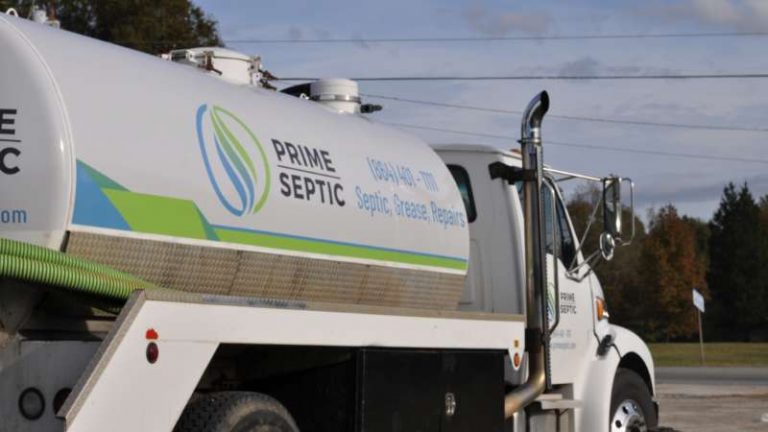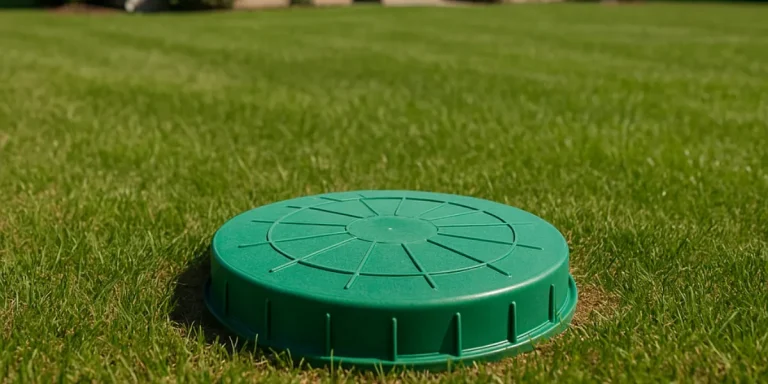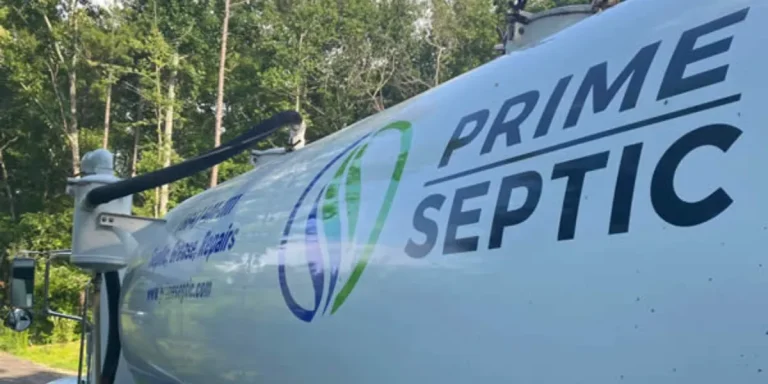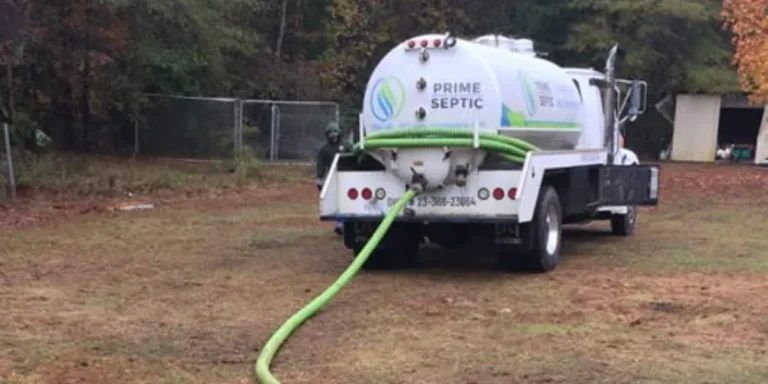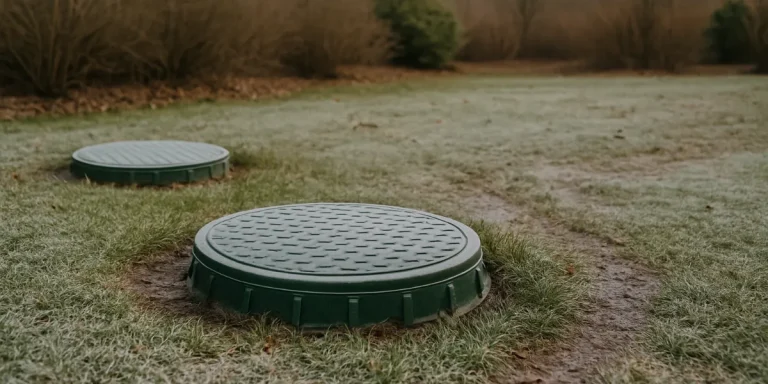Can You Park Over a Septic Tank or Drain Field?
It’s a question we hear often from homeowners — especially those planning to host guests, build a new driveway, or store extra vehicles: “Is it okay to park over a septic tank or drain field?”
The short answer is no, and ignoring this advice can lead to expensive repairs and system failure. At Prime Septic, we’ve seen firsthand what happens when these components are accidentally damaged by vehicle weight.
If you live in Belton, Anderson, or the surrounding South Carolina areas, here’s what you need to know before driving or parking near your septic system.
Why You Should Never Park Over a Septic Tank
Septic tanks are designed to safely store and process household wastewater — not to carry the weight of vehicles. Although they're buried underground, septic tanks are not structural support systems. Parking cars, trucks, trailers, RVs, or even heavy equipment over a septic tank can cause serious and costly damage, especially over time or in wet conditions.
Here’s a breakdown of why this should be avoided at all costs:
Structural Damage to the Tank
-
- Cracking and Collapse: The weight of even a single vehicle can place excessive pressure on the top of the tank. Concrete tanks can crack, and fiberglass or plastic tanks may warp or cave in completely under pressure.
- Lid and Riser Stress: Older tanks often have concrete or metal lids that were not designed to support added weight. Repeated vehicle traffic can weaken or fracture the lid, putting the tank — and anyone walking nearby — at risk.
- Soil Displacement: The ground above your tank can shift or compress, putting uneven pressure on the tank's structure and increasing the chance of collapse.
Serious Safety Hazards
-
- Lid Failure and Fall Risk: A cracked or weakened septic tank lid can give way without warning. This poses a real danger to pets, children, or even adults walking across the area.
- Ground Collapse or Sinkholes: In extreme cases, a caved-in tank can cause the soil above it to collapse, creating a hazardous sinkhole-like effect that can damage landscaping, equipment, or vehicles — and cause injuries.
Internal System Disruption
-
- Broken Baffles or Piping: The impact and weight of a parked vehicle can disrupt internal components like baffles or connecting pipes, which are essential to separating solids and ensuring wastewater flows properly.
- Sewage Leaks and Contamination: A compromised tank may leak raw sewage into the surrounding soil. This not only leads to foul odors and environmental damage but can contaminate groundwater or nearby wells — especially in rural areas like Belton or Anderson County.
- Blocked Drainage: If the lid shifts or breaks, debris or water can enter the tank, creating blockages or even causing the system to overflow.
Even One-Time Parking Can Be Risky
Many homeowners assume that temporary parking — like having guests over for a weekend or storing a trailer during renovations — is harmless. But even short-term loading can damage a septic tank, especially when:
-
- The soil is soft or waterlogged from recent rain
- The tank is older or lacks modern reinforcements
- The vehicle is heavy or stationary for multiple hours
It’s not worth the risk. Repairs for a cracked or collapsed septic tank can range from thousands of dollars in excavation and replacement to additional costs if the drain field is affected by runoff or leakage.
Why You Should Avoid Parking on the Drain Field
Your drain field — also called a leach field — is one of the most critical components of your septic system. While the septic tank holds and separates waste, the drain field is where treated wastewater is dispersed into the soil for natural filtration. It’s a delicate balance of soil, gravel, and perforated pipes working together to return clean water to the environment.
Unlike the tank, the drain field doesn’t have any visible structures or protective reinforcements. It’s often just a section of lawn, and that makes it especially vulnerable to damage — especially from parked vehicles, trailers, or construction equipment.
What Can Go Wrong When You Park on a Drain Field
Even light vehicles can cause long-term harm when parked on top of a leach field. Here's why:
1. Soil Compaction
Healthy drain fields rely on loose, porous soil to allow wastewater to filter and absorb naturally. When a vehicle parks on this area, it compacts the soil — squeezing out air pockets and reducing the soil’s permeability.
What that means for your system:
-
-
- Water can’t soak into the ground as efficiently
- Filtration slows or stops, causing pooling and surface runoff
- Wastewater may start backing up into your tank or home
-
Over time, compacted soil becomes almost impermeable, rendering the entire field ineffective.
2. Damaged Drain Pipes
Beneath the surface of the drain field are a series of narrow, perforated pipes that distribute effluent. These pipes are not meant to bear weight. Parking over the field can crack, bend, or misalign them, which disrupts the even flow of wastewater.
Common results include:
-
-
- Uneven distribution of effluent
- Wastewater collecting in only part of the field
- Total failure of the system’s ability to drain properly
-
Once pipes are compromised, expensive excavation and replacement are often the only fix.
3. Drain Field Saturation and System Failure
If the field becomes too compacted or the pipes are damaged, wastewater starts to back up in the system. That can lead to:
-
-
- Sewage surfacing in the yard — posing a health and environmental hazard
- Strong odors around the property
- Slow drains, gurgling pipes, or backups inside the home
- Premature failure of the entire septic system
-
Repairing or replacing a drain field is often the most expensive septic-related service a homeowner can face.
4. Drainage Disruption During Wet Conditions
Even temporary parking during or after rain can cause major problems. Wet soil is softer and more prone to compression, meaning a vehicle can cause damage much faster than under dry conditions.
In places like Belton and Greenville, where summer storms are frequent, even one vehicle parked during wet weather can cause compaction that lasts long after the car is gone.
Drain Fields Are Often Unmarked — Know Before You Park
Unlike septic tanks, which often have a visible lid or riser, drain fields are typically hidden below the lawn. Unless you’ve had your system mapped or marked, you may not even know where your leach field is located.
That’s why it’s essential to:
-
- Have your system professionally located if you're unsure
- Avoid parking on any part of the lawn if the drain field location is unknown
- Use landscape barriers or markers to keep vehicles off critical areas
At Prime Septic, we offer drain field locating and inspection services so you can make informed decisions before building, parking, or landscaping near your system.
What If I Need to Use the Space for Vehicles?
If your septic tank or drain field is in a high-traffic area — such as near a driveway, barn, or RV parking pad — there are a few things you can do:
-
- Have your system located and marked before doing any construction or grading
- Install protective barriers or landscaping features (like rocks or fencing) to block vehicle access
- Consider a reinforced access riser if occasional service vehicles need access to the tank, but this still doesn’t make it safe for parking
Always talk with a licensed septic professional before making any changes near your system. At Prime Septic, we offer septic locating services and can help you plan around your system safely.
Mini Case Example: Cracked Tank in Anderson County
A customer in Anderson recently had a contractor park a dump trailer on their lawn during a home renovation. The trailer was unknowingly parked on top of their septic tank. Within days, the lid cracked, allowing water and soil to enter the tank. The system had to be pumped, the lid replaced, and the landscaping re-graded — all of which could have been avoided with proper planning.
Where We Work
Prime Septic proudly provides septic system inspections, tank locating, pumping, and repairs in:
If you're unsure about your septic tank location or planning a project near it, we're here to help.
Don’t Risk It — Call Prime Septic Before You Park
Protect your system and your property with expert advice.
If you're planning to park, build, or drive near an unknown area of your yard, don’t guess — call Prime Septic. We’ll locate your tank and drain field, assess the risk, and give you clear recommendations to keep everything working properly.
Request a quote or book an inspection today — proudly serving Belton, Anderson, Greenville, and surrounding South Carolina communities.

